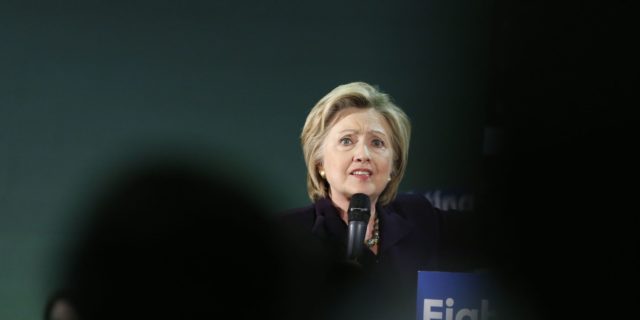Hillary’s ‘smart power’ foreign policy makes her unfit for command
Today’s headlines are about the U.S. House of Representatives Permanent Select Committee on Intelligence report on Benghazi. Benghazi is the expected outcome of Hillary Clinton’s “smart power” policy while she was Secretary of State. This policy is part of her platform as the Democratic Party nominee for president.
According to Chester A. Crocker, smart power,
Involves the strategic use of diplomacy, persuasion, capacity building, and the projection of power and influence in ways that are cost-effective and have political and social legitimacy.
It was smart power that Hillary used to depose Muammar Gaddafi, the former Prime Minister of Libya. David Brooks in a June 2011 New York Times op-ed “Smart Power Setback” wrote:
When she became secretary of state, Hillary Clinton sketched out a very attractive foreign policy vision that would use “the full range of tools at our disposal: diplomatic, economic, military, political, legal and cultural.” But it could be that cultural and economic development works on a different timetable than traditional foreign policy.
Perhaps we don’t know enough, can’t plan enough, can’t implement effectively enough to coordinate nation building with national security objectives.
The peace and security timetable is measured in years or decades. Development progress, if it comes at all, is measured in generations.
In February 2016 a New York Times article by Jo Becker and Scott Shane titled “Hillary Clinton, ‘Smart Power’ and a Dictator’s Fall” noted:
President Obama was deeply wary of another military venture in a Muslim country [Libya]. Most of his senior advisers were telling him to stay out. Still, he dispatched Mrs. Clinton to sound out Mr. Jibril, a leader of the Libyan opposition. Their late night meeting on March 14, 2011, would be the first chance for a top American official to get a sense of whom, exactly, the United States was being asked to support.
In her suite at the Westin, she and Mr. Jibril, a political scientist with a doctorate from the University of Pittsburgh, spoke at length about the fastmoving military situation in Libya. But Mrs. Clinton was clearly also thinking about Iraq, and its hard lessons for American intervention.
Did the opposition’s Transitional National Council really represent the whole of a deeply divided country, or just one region? What if Colonel Qaddafi quit, fled or was killed — did they have a plan for what came next?
“She was asking every question you could imagine,” Mr. Jibril recalled.
Mrs. Clinton was won over. Opposition leaders “said all the right things about supporting democracy and inclusivity and building Libyan institutions, providing some hope that we might be able to pull this off,” said Philip H. Gordon, one of her assistant secretaries. “They gave us what we wanted to hear. And you do want to believe.”
Her conviction would be critical in persuading Mr. Obama to join allies in bombing Colonel Qaddafi’s forces. In fact, Mr. Obama’s defense secretary, Robert M. Gates, would later say that in a “5149” decision, it was Mrs. Clinton’s support that put the ambivalent president over the line.
The consequences would be more far reaching than anyone imagined, leaving Libya a failed state and a terrorist haven, a place where the direst answers to Mrs. Clinton’s questions have come to pass.
[Emphasis added]
Ironically is was American diplomat John Christopher “Chris” Stevens who Clinton sent to Libya to implement the “5149” decision. Gaddafi was toppled and executed by those same “opposition leaders” who convinced Secretary Clinton they were on our side. Clinton implemented smart power.
Fast forward to September 11, 2012. Hillary’s smart power caused her and the State Department to rely on local militia to protect now Ambassador Chris Stevens at the compound in Benghazi. Stevens knew the risks and expressed them in his diary on that fateful day.
Stevens’s final entry in his diary, dated Sept. 11, reads: “Never ending security threats…”
Security threats ignored because of Hillary’s smart power policies. Four died on that day, the cause Hillary Clinton and smart power.
RELATED REPORT: Proposed Additional Views of Representatives Jim Jordan and Mike Pompeo

